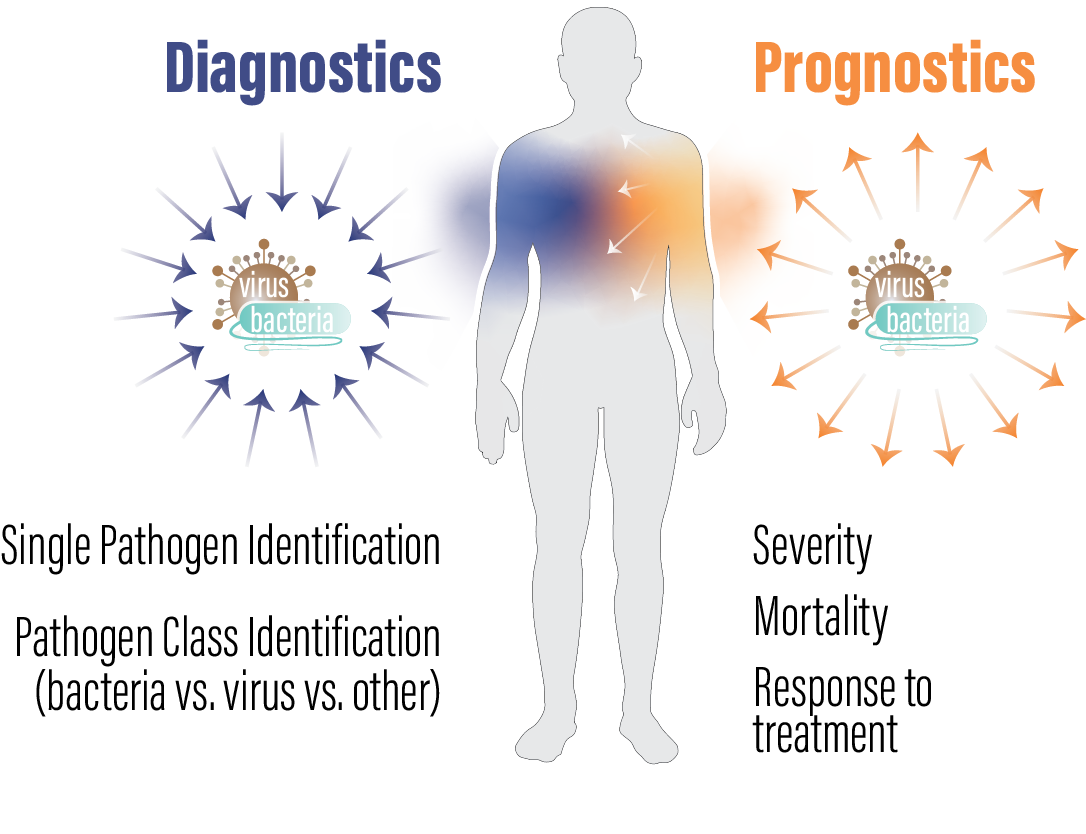Capturing large amounts of data to characterize the state of the biological system as a whole and then using advanced mathematical analysis to identify networks and associations of factors appears to be a powerful tool in understanding pathogenesis, diagnosis/prognosis and targets for intervention. These approaches are critical in discovering novel pathways; dissecting pathogen- or pathogen-class specific host responses; diagnostics based on biomarkers for pathogen-class, risk and severity assessment; biomarker-based patient stratification creating target patient profiles for therapeutic classes of drugs and biologics; validating therapeutic targets; clinical management strategies; and pharmacodynamic or (therapeutic) response biomarkers for prognostics.


